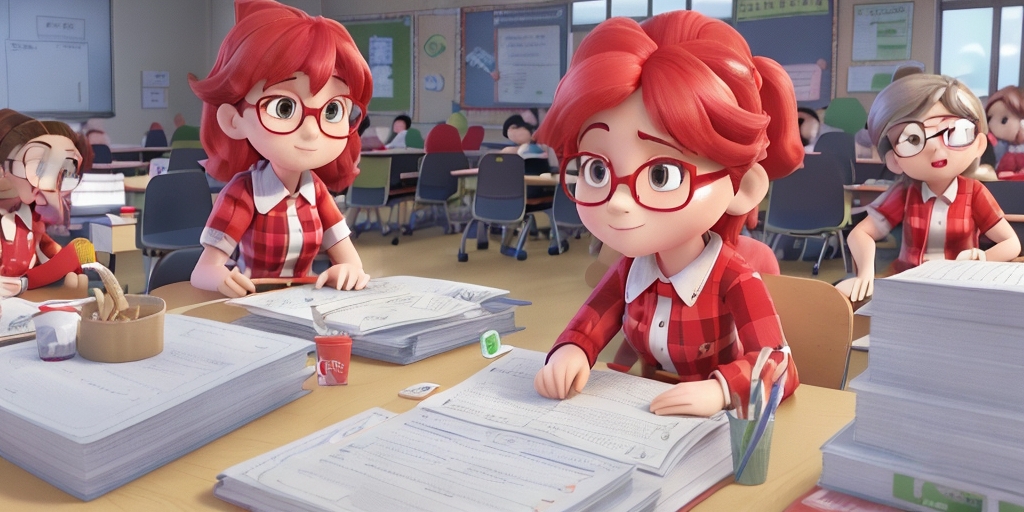How Effective are Plagiarism Checkers?
I am a creative and analytical person who enjoys problem-solving and finding creative solutions. I am driven by curiosity and a passion for learning, and take initiative to explore and understand new concepts. I am a great communicator and collaborate well with others, and am always looking for opportunities to improve myself and my team.
How Effective are Plagiarism Checkers?
The Problem with Plagiarism

Plagiarism is a significant issue in the writing world. It's not just about copying someone else's work; it's about integrity and honesty. When someone plagiarizes, they're not just stealing content; they're also undermining the trust and respect that are fundamental to any form of communication.
- For instance, in academia, plagiarism can lead to severe consequences, including expulsion.
- In the professional world, it can damage reputations and lead to legal issues.
So, it's clear that plagiarism is a problem that needs to be addressed. But how can we do that?
The Solution: Plagiarism Checkers
Enter plagiarism checkers. These tools promise to help us detect copied content, ensuring that our work is original and free from plagiarism. But how effective are they really?
- Do they accurately identify copied content?
- Can they distinguish between properly cited quotes and plagiarized material?
- Are they able to detect paraphrased content?
These are some of the questions we'll be exploring in this article. We'll look at how plagiarism checkers work, what technology they use, and how reliable they are. We'll also discuss some of the most popular plagiarism checkers available online, including Turnitin, Copyscape, and others.
But before we dive into that, it's important to understand that plagiarism checkers are not infallible. They have their limitations, and they're not always 100% accurate. So, while they can be a useful tool in the fight against plagiarism, they should not be the only tool we rely on.
So, are plagiarism checkers really as effective as they claim to be? Stay tuned as we explore this topic in depth in the next section.
Popular Plagiarism Checkers
When it comes to plagiarism checkers, there's a wide array of options available online. But which ones are the most popular and why? Let's dive in and find out.
Turnitin and Its Alternatives
Turnitin is a household name in the world of plagiarism detection. It's used by many educational institutions and is known for its comprehensive database of academic papers. But it's not the only game in town. There are other tools like Copyscape that are just as effective.
Copyscape, for instance, is a favorite among webmasters and bloggers. It's easy to use and offers a free version that allows you to check if your content is unique. It's particularly effective for detecting copied content on the web.
But what makes these tools so popular? Is it their user-friendly interface, their comprehensive databases, or their accurate results? We'll explore this in the next sections.
Other Effective Plagiarism Checkers
There are also other plagiarism checkers that are worth mentioning. These include:
- Enago Plagiarism Checker: This tool is known for its high accuracy and detailed reports. It's used by researchers and academic writers.
- Grammarly: While it's primarily a grammar checker, Grammarly also offers a plagiarism detection feature. It's popular due to its integration with various platforms like Microsoft Word and Google Docs.
- Duplichecker: This is a free tool that allows you to check your content for plagiarism quickly. It's simple to use and provides instant results.
- ProWritingAid: This is a comprehensive writing tool that includes a plagiarism checker. It's loved by writers for its in-depth writing reports and suggestions.
As Ernest Hemingway once said, "There is nothing to writing. All you do is sit down at a typewriter and bleed." But in the digital age, we also need to ensure that our writing is original and not bleeding someone else's words. These tools can help us achieve that.
But how do these tools work? How do they manage to detect copied content? And more importantly, how reliable are they? Stay tuned as we delve into the mechanics of plagiarism checkers in the next section.
How Plagiarism Checkers Work

Ever wondered how plagiarism checkers manage to spot that one copied sentence in a sea of original content? It's all about the technology behind them. Let's dive in and understand how these tools work.
The Technology Behind Plagiarism Checkers
Plagiarism checkers are powered by advanced algorithms and databases. They scan the text you input and compare it against millions of documents available online. Here's a simplified breakdown of the process:
- Text Parsing: The checker breaks down the text into smaller parts, usually sentences or phrases.
- Searching: Each part is then searched in the checker's database, which includes web pages, academic papers, articles, and more.
- Matching: The tool identifies matches between your text and the content in its database.
- Reporting: Finally, the checker generates a report highlighting the matched content and its source.
As Albert Einstein once said, "The secret to creativity is knowing how to hide your sources." But with plagiarism checkers, hiding sources isn't an option. They are designed to spot even the slightest similarities.
But how accurate are these tools? Can they differentiate between a well-cited quote and a copied sentence? And what about synonyms and paraphrasing? Do they consider these as plagiarism too?
Well, the answers to these questions lie in the sophistication of the checker's algorithm. Some checkers are smart enough to recognize synonyms and paraphrasing, while others might flag them as plagiarism. Similarly, a well-cited quote might be flagged by some checkers, but not by others.
So, while plagiarism checkers are powerful tools, their effectiveness largely depends on their algorithm's sophistication. But how can we evaluate this sophistication? And how reliable are these tools in real-world scenarios?
Stay tuned as we delve into these questions in the next section. We'll look at some case studies and user reviews to evaluate the effectiveness of plagiarism checkers. You might be surprised by what we find!
Evaluating Plagiarism Checkers

So, how reliable are plagiarism checkers? Do they live up to their promises? Let's dive in and find out.
Case Studies
One of the best ways to evaluate the effectiveness of plagiarism checkers is by looking at real-world case studies and user reviews. Here are a few examples:
- Case Study 1: A university professor used Turnitin to check his students' papers. He found that the tool was able to detect most instances of plagiarism, but it also flagged some false positives. This required him to manually review the flagged content to determine if it was indeed plagiarized.
- Case Study 2: A freelance writer used Grammarly to check her work before submitting it to clients. She found that the tool was very effective in detecting copied content, but it sometimes missed subtle instances of plagiarism, such as paraphrasing without proper citation.
- Case Study 3: A blogger used Duplichecker to ensure his posts were original. He found that the tool was easy to use and accurate, but it sometimes flagged common phrases as plagiarized content.
These case studies show that while plagiarism checkers can be effective, they are not perfect. They can sometimes flag false positives or miss subtle instances of plagiarism.
Mentioned Resources
There are also several resources available that can help you evaluate the effectiveness of plagiarism checkers. These include:
- Fixgerald: This is a comprehensive guide that provides detailed reviews of various plagiarism checkers.
- PlagiarismCheck: This site offers a free plagiarism checker and provides useful tips on how to avoid plagiarism.
- ScanMyEssay: This tool allows you to scan your essay for plagiarism and provides a detailed report of the results.
As the famous author Mark Twain once said, "The difference between the almost right word and the right word is really a large matter—it's the difference between the lightning bug and the lightning." This quote perfectly encapsulates the importance of originality in writing. Plagiarism checkers can help ensure that your work is original, but they are not foolproof.
So, what are the limitations of these tools? Are there instances where they might fail to detect plagiarism? Stay tuned as we delve into these questions in the next section.
The Limitations of Plagiarism Checkers
While plagiarism checkers are a valuable tool in the fight against copied content, they are not without their flaws. Like any technology, they have limitations that can sometimes hinder their effectiveness. Let's delve into some of these limitations.
False Positives and Negatives
One of the main issues with plagiarism checkers is the occurrence of false positives and negatives. A false positive is when the checker flags content as plagiarized when it isn't, while a false negative is when it fails to detect actual plagiarism.
For instance, a student might quote a famous line from Shakespeare in their essay. A plagiarism checker might flag this as copied content, resulting in a false positive. On the other hand, if the same student paraphrases a paragraph from a less-known source without proper citation, the checker might miss it, leading to a false negative.
Why does this happen? Well, plagiarism checkers rely on algorithms to compare the text against a database of content. These algorithms, while sophisticated, are not perfect. They can sometimes fail to understand the context, leading to errors.
Moreover, the effectiveness of a plagiarism checker also depends on the size and quality of its database. If the database doesn't include the source from which the content was copied, the checker won't be able to detect the plagiarism.
Another limitation is that plagiarism checkers can't detect idea theft. If someone presents another person's idea as their own without copying the exact words, a plagiarism checker won't flag it. This is because these tools can only detect copied text, not stolen ideas.
So, while plagiarism checkers are a great tool for detecting copied content, they are not foolproof. They should be used as part of a broader strategy to prevent and detect plagiarism, not as the sole solution.
But does this mean that plagiarism checkers are not effective? Should we stop using them altogether? Not necessarily. Despite their limitations, they still offer significant benefits. But what are these benefits? And how do they weigh against the limitations? Stay tuned for the final part of this article where we'll discuss the pros and cons of using plagiarism checkers.
The Verdict: Are Plagiarism Checkers Effective?

After a thorough examination of the various aspects of plagiarism checkers, it's time to draw some conclusions. Are these tools as effective as they claim to be? Let's weigh the pros and cons.
The Pros and Cons
On the positive side, plagiarism checkers have proven to be a valuable tool in the fight against plagiarism. They can scan vast amounts of data in a short time, making it easier for writers, researchers, and educators to ensure the originality of their work. Tools like Turnitin, Copyscape, and Grammarly have been praised for their accuracy and ease of use.
Moreover, the technology behind these tools is constantly improving. Advanced algorithms and machine learning techniques are being used to enhance their detection capabilities. This means that they are becoming more effective at identifying not just direct copies, but also paraphrased content and other forms of academic dishonesty.
However, it's important to remember that these tools are not infallible. As we discussed earlier, they can sometimes give false positives or miss plagiarized content. This is often due to the limitations of their algorithms, which can struggle with complex linguistic structures or unusual writing styles.
Furthermore, these tools can be expensive, especially for individual users or small institutions. While there are free alternatives available, they often lack the advanced features and accuracy of their paid counterparts.
Conclusion: The Final Word on Plagiarism Checkers
So, are plagiarism checkers effective? The answer is yes, but with some caveats. They are a powerful tool for detecting plagiarism, but they should not be relied upon as the sole measure of a work's originality. It's always important to use your own judgement and to foster a culture of academic integrity.
Despite their limitations, the benefits of using plagiarism checkers far outweigh the drawbacks. They can save time, provide peace of mind, and help to uphold the standards of honesty and integrity that are so important in the world of writing and research.
In conclusion, while plagiarism checkers are not perfect, they are a valuable tool in the fight against plagiarism. As technology continues to advance, we can expect these tools to become even more effective in the future.



.jpg)
.jpg)

.jpg)
.jpg_nowm_1260.jpg)